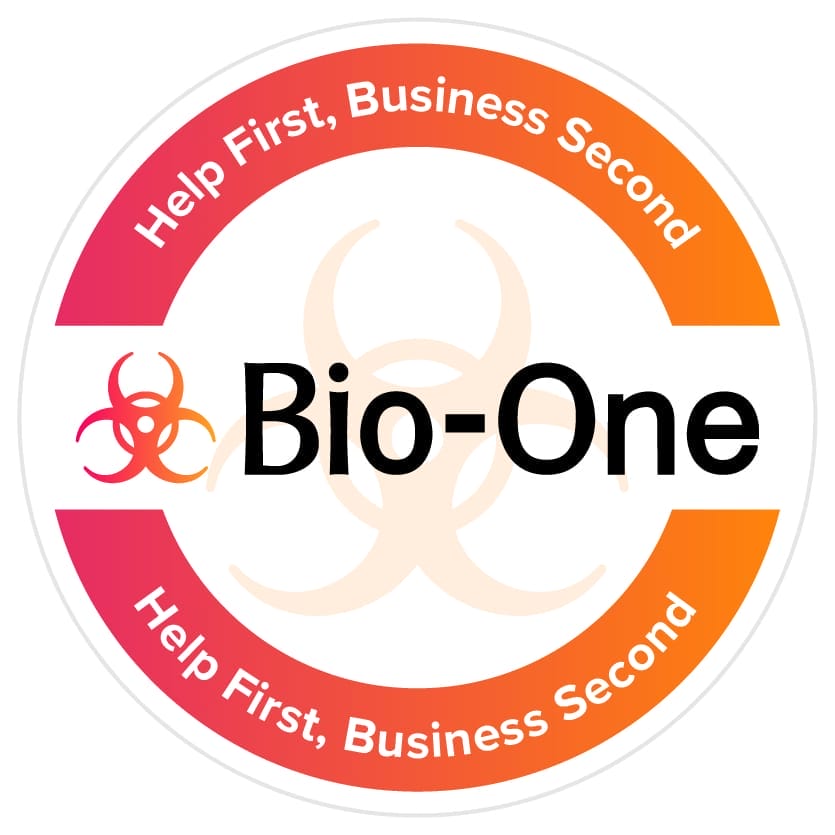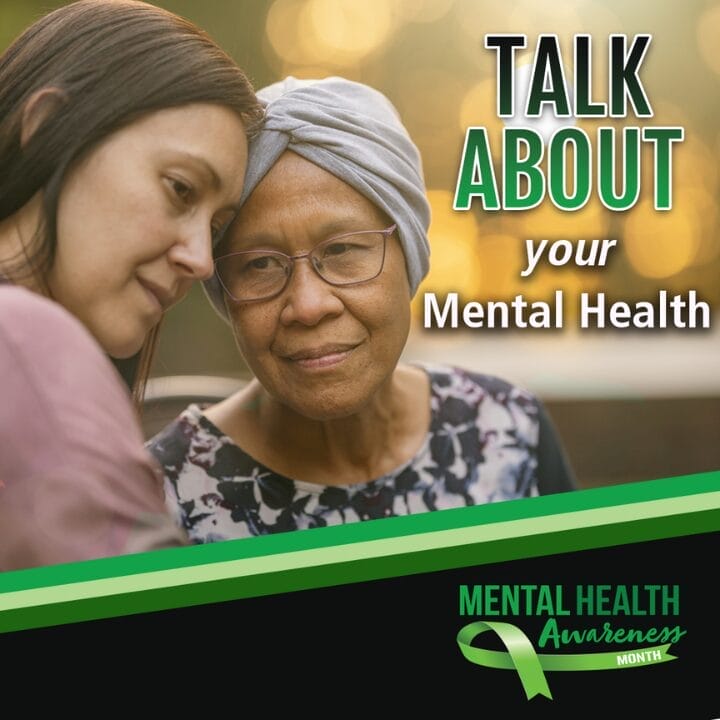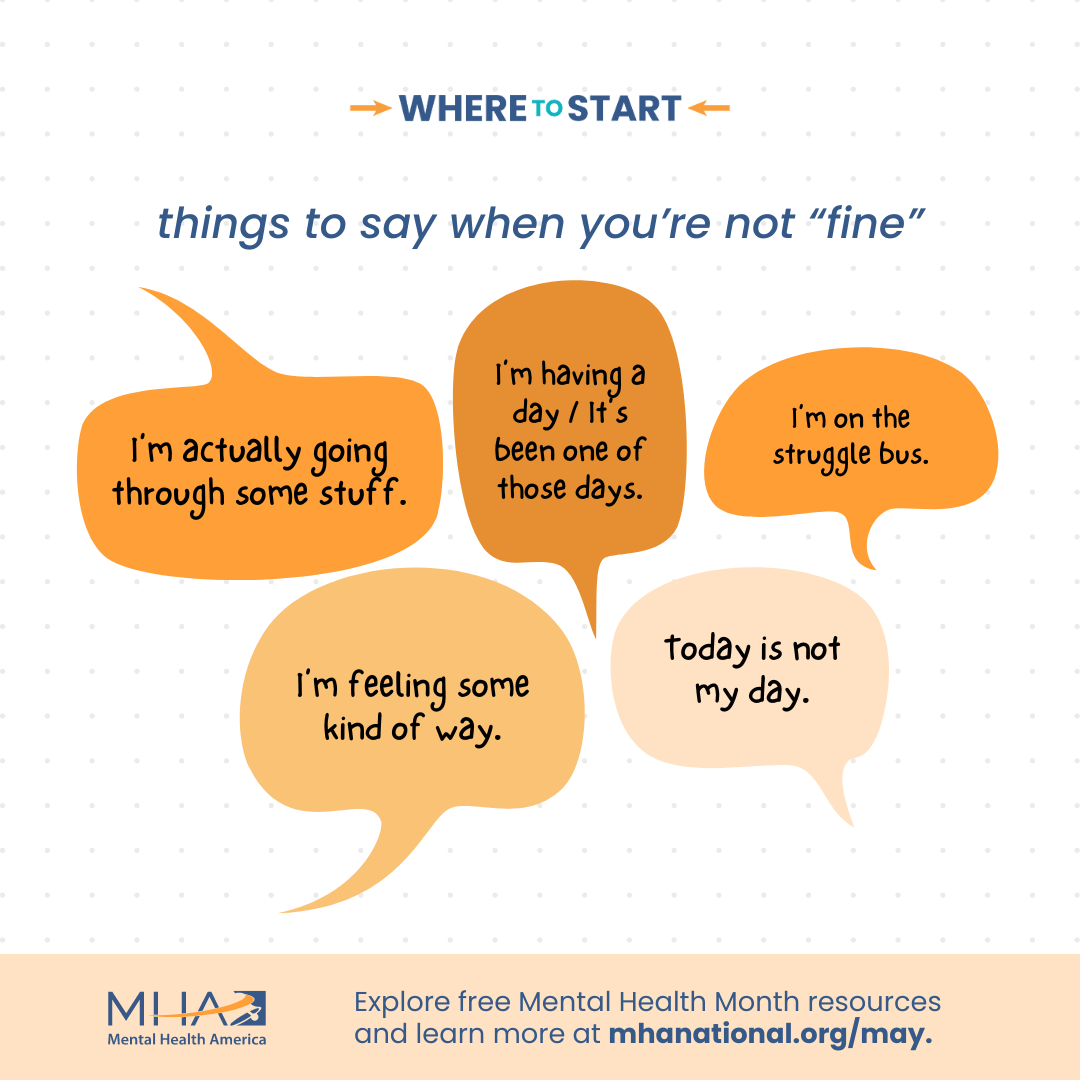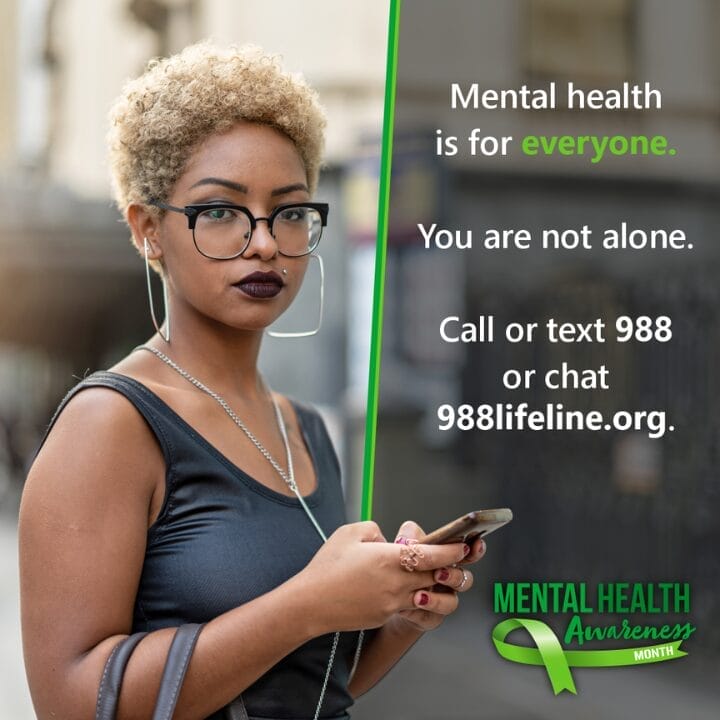
“Never give up on someone with a mental illness. When 'I' is replaced by 'we,' Illness becomes Wellness.”
~Shannon L. Alder

"Fine."
"Okay."
"Alright."
We’ve all had someone tell us they were one of those things and known that it couldn’t be further from the truth. Maybe it was the look on their face, the tone of their voice, or their body language that gave them away – or maybe you’ve noticed that they have been acting differently lately.
Distress can show up in many ways. Whether someone thinks they are doing a good job of masking their emotions, or they are obviously being sarcastic when they say that they’re alright, it’s normal to want to help in some way. While what you say will likely be different depending on how well you know the person, here are some ideas for things to say to create an environment that encourages someone to open up about what they’re going through.

If you feel sad, worried, or scared after trying to help yourself or reaching out to others, you might be showing the early warning signs of a mental health condition.

Start a conversation about mental health when there is an open window of time to have an in-depth discussion, and neither you or the person you’re talking to will have to cut the conversation short to take care of other obligations. Plan to set aside at least 30 minutes to an hour.
Do....
Don't...
Bio-One of Columbus is a leader in crime scene cleanup and biohazard decontamination services in Columbus. Our technicians are highly skilled and have been trained on OSHA's safety standards.
Bio-One of Columbus continues to be the most passionate and caring company in the cleaning services industry.
For more information, visit us at https://bioonecolumbus.com/
Twitter: @BioOneColumbus LinkedIn: Bio-One Columbus Facebook: Bio-One Columbus Instagram: Bio-One Columbus
If you or someone you know may be considering suicide, contact the National Suicide Prevention Lifeline at 1-800-273-8255 (en español: 1-888-628-9454; deaf and hard of hearing: dial 711, then 1-800-273-8255) or the Crisis Text Line by texting HOME to 741741.

According to the American Psychiatric Association, suicide is the 10th leading cause of death in the United States and the second leading cause of death (after accidents) for people aged 10 to 34. And according the CDC, published reports from 2020 suggest that the pandemic has had a negative effect on children’s mental health.
“Beginning in April 2020, the proportion of children’s mental health–related ED visits among all pediatric ED visits increased and remained elevated through October. Compared with 2019, the proportion of mental health–related visits for children aged 5–11 and 12–17 years increased approximately 24%. and 31%, respectively.”
Researchers have yet to link recent suicides to the pandemic since 2020 suicide data is not yet available. But on the ground, there's growing concern.
The February 2021 NPR article “Child Psychiatrists Warn That The Pandemic May Be Driving Up Kids' Suicide Risk” explores possible correlation. Takeaways include:
For ways to help kids at risk, NPR encourages readers to read Part 2 of their story, “Make Space, Listen, Offer Hope: How To Help A Child At Risk Of Suicide”.
Suicide Prevention Resources
Survivors of Suicide – What to Do Next
The loss of a loved one by suicide can be a deeply painful and traumatizing experience; however, it’s important to know that everyone experiences suicide loss in their own way. As you begin the process of healing, consider reading the American Foundation for Suicide Prevention’s guide for to talk to others about what happened and identify ways to take care of yourself.
Additionally, if you have lost someone to suicide, there may be a cleanup required. There is no need for family or friends of the loved one to be further traumatized or overwhelmed with trying to figure out how to clean the impacted area. Bio-One is here for you. Learn more about Bio-One’s suicide remediation services.
If you or someone you know may be considering suicide, contact the National Suicide Prevention Lifeline at 1-800-273-8255 (en español: 1-888-628-9454; deaf and hard of hearing: dial 711, then 1-800-273-8255) or the Crisis Text Line by texting HOME to 741741.